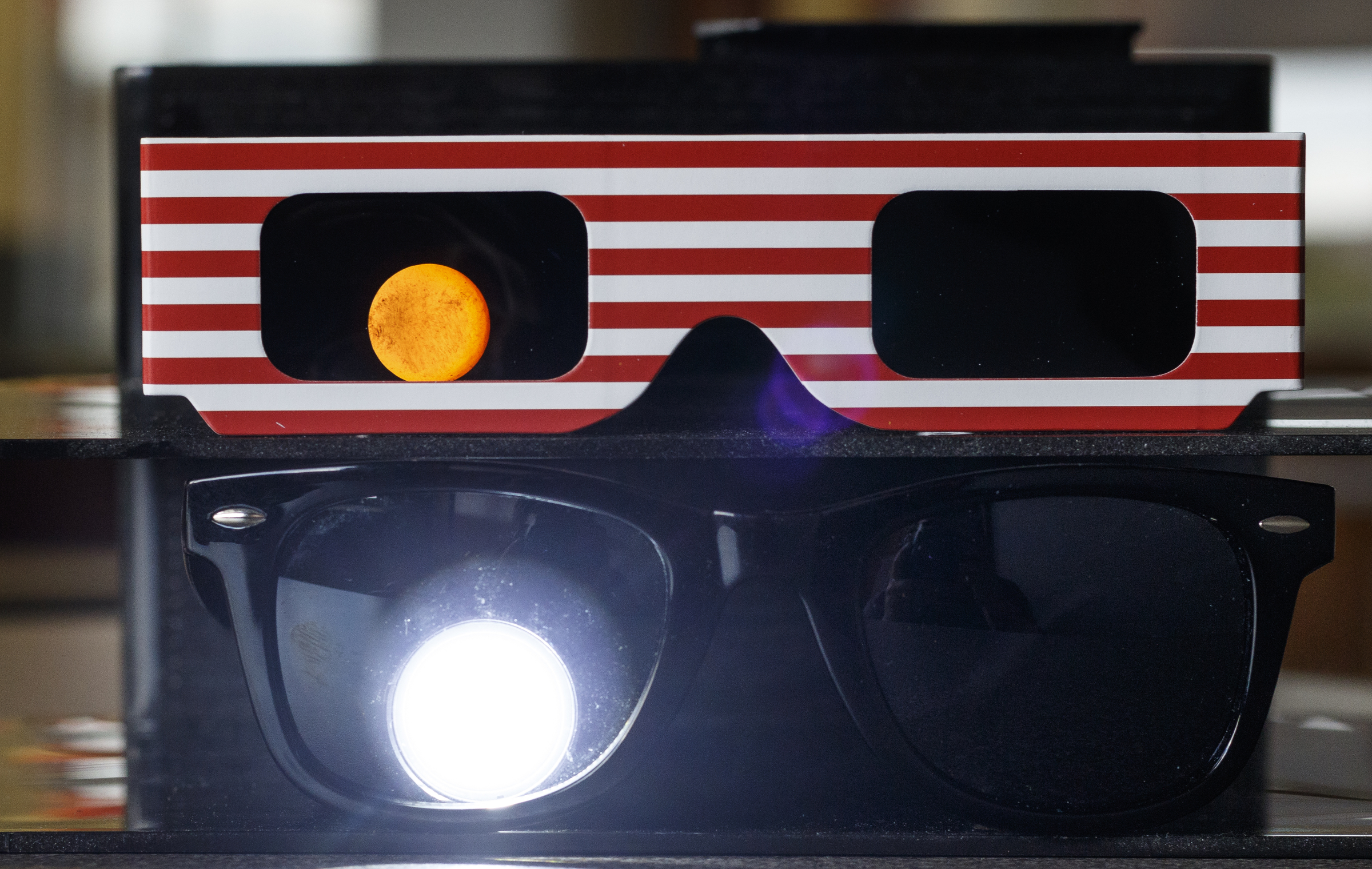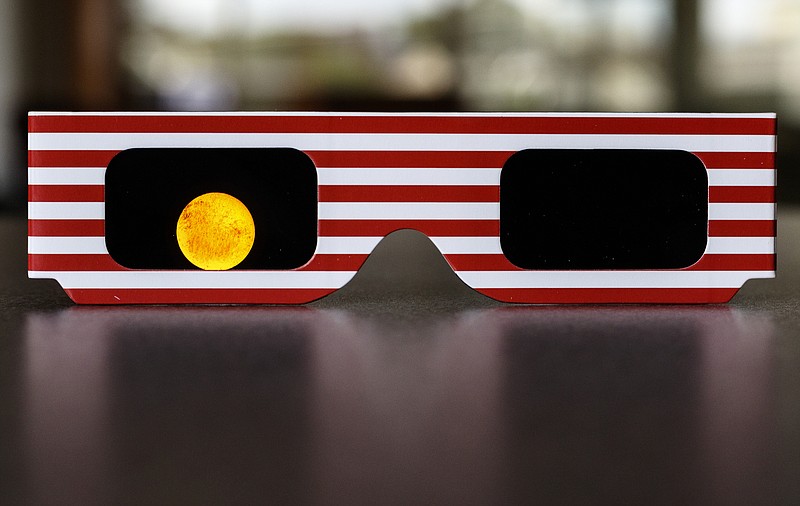 An LED flashlight is shone through a pair of ISO certified eclipse glasses, top, at full power while the same brand of flashlight is shined through a pair of regular sunglasses at its lowest power setting to demonstrate the difference in light transmission. It is unsafe to view a solar eclipse using anything but ISO certified eclipse viewing glasses.
An LED flashlight is shone through a pair of ISO certified eclipse glasses, top, at full power while the same brand of flashlight is shined through a pair of regular sunglasses at its lowest power setting to demonstrate the difference in light transmission. It is unsafe to view a solar eclipse using anything but ISO certified eclipse viewing glasses.
Monday's solar eclipse is luring sun-gazers from across the country to Tennessee, but Mark Bedwell, a registered nurse from Jackson, will not be joining the viewing party this time.
Tennessee is one of 14 states that will be in the eclipse's 70-mile-wide path of totality, meaning the moon will completely block the sun, making part of the state a prime viewing destination.
But there are dangers that go with staring directly at the sun, even if it's partially eclipsed, including the potential for permanent vision loss or blindness.
"If you have to doubt so much about something being safe, it's not safe," said Bedwell, who is taking a conservative approach to viewing solar eclipses after his vision was damaged from looking at one more than three decades ago.
Bedwell was working as an EMT in Lexington, Ky., one summer when a solar eclipse passed through. He said he knew looking directly into the sun could damage his eyesight, but the methodology he used to protect his eyes was inadequate.
"We were told that it was OK to use exposed X-ray film to look at the solar eclipse that day," Bedwell said. "I remember seeing the whole thing, and I remember blinking through some of it and then realizing it was cold around me, because it was like night time."
Bedwell was driving when a "large brown perfectly round circle" obscured the vision in his right eye, prompting him to see a doctor, who pinpointed the problem as solar retinopathy, which is retinal damage caused by exposure to excessive ultraviolet light.
"What was shocking was when he said, 'This can't be repaired,'" Bedwell said, adding that he is lucky that he only used his right eye to look at the sun that day. He's not completely blind, but his right-eye vision remains blurred.
"You do not need to gamble your vision on it," he said. "I've got one good eye - I don't need to botch it up."
Public health officials and physicians echo Bedwell's concern and say the only safe way to view the sun when it's not in totality is with specific solar filters or glasses that meet ISO safety standards. Dark sunglasses, goggles and homemade filters are not safe.
"Everyone is individual, but typically the longer you look at it the more likely for damage, so no one should look at the sun during the partial eclipse phase," said Dr. Peter Lindquist, an ophthalmologist at Southeast Eye Specialists and Memorial CHI. He emphasized that solar retinopathy isn't treatable and may not be immediately apparent, because it's painless and symptoms can take days to emerge.
Since the path of totality isn't in Chattanooga, there is no safe time to look at the sun without special protection.
Lindquist said he's especially worried about children and adolescents watching the eclipse, because their eyes are more vulnerable to ultraviolet light, and they could be less apt to heed warnings.
Although he's ready for a potential surge in eye injuries, Dr. Sudave Mendiratta, emergency department medical director for Erlanger Health System, is also prepping the hospital for the likelihood of increased emergency incidents as large numbers of people flock to the region.
"I really think the largest influx of patients will be due to trauma-related injuries and heat-related illness," said Mendiratta, who recommends that people stay cool, hydrated and alert.
Erlanger Bledsoe Hospital in Pikeville, which is near the path of totality, is a site that may see increased patient volume on Monday.
"It's an exciting moment," Bedwell said. "But at the same time, don't be foolish. It's just not worth it."
Contact Elizabeth Fite at efite@timesfreepress.com or 423-757-6673.
